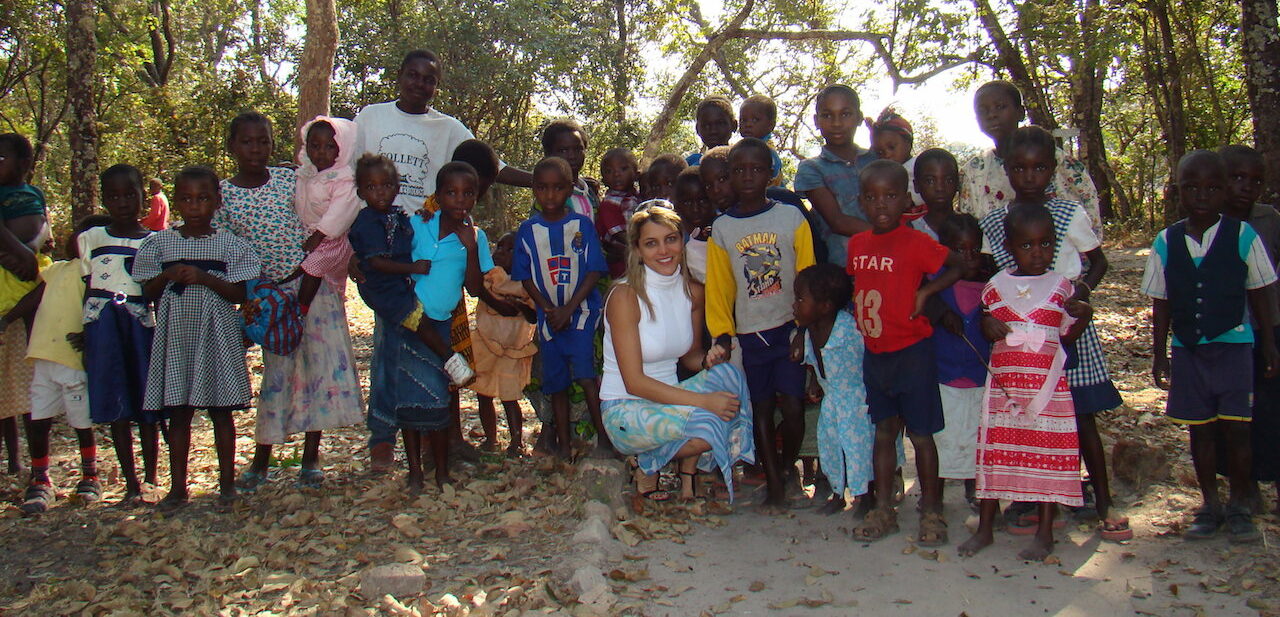 Ana Paula's Journal
Ana Paula's JournalDecades of rapid technological advancement in combination with social and economic changes have widened generational gaps and introduced new sources of conflict over issues of national identity and cultural values. The world as we know it is transforming at a rapid rate and new risks are emerging that seriously threaten our future.
February 9, 2018
Effective leaders and executives tend to be those who have a broad conceptual view, a deep understanding of today’s business environment, and a strong sense of how businesses operate in different ways. To be effective across borders on a global scale, a leader needs to be flexible, intelligent, and able to adapt the approach he or she takes according to different cultural contexts. Leaders need to be self-aware, strategic thinkers who demonstrate the aptitude to endure the challenges associated with globalization.
Decades of rapid technological advancement in combination with social and economic changes have widened generational gaps and introduced new sources of conflict over issues of national identity and cultural values. The world as we know it is transforming at a rapid rate and new risks are emerging that seriously threaten our future.
The greatest challenge that today’s world leaders face is identifying inclusive methods by which we can overcome cultural divisions and work together as an international unit to respond to global challenges, climate change, and resource depletion. Today’s leaders need to demonstrate much more than a capacity to engage and inspire; they also need to have a strong sense of purpose and the ability to communicate this sense of purpose in a compelling and convincing manner. Doing so hinges on a leader’s personal credibility. If people do not have faith and believe in the messenger, they will not listen to the message. Leaders need to earn the respect and trust of the people they hope to influence.
The contemporary world is proliferated with extensive digital technologies that disrupt many of our existing business and government models. We need to reevaluate, rebuild our communities, and create a collaborative system by which we can minimize the risks of dramatic social rupture and bring together governments, civil societies, and corporations to prevent technology disruptions and environmental problems from undermining our future.
Unemployment, rising inequality, and low productivity remain some of our most pressing global issues. The extent and range of the job losses that have resulted from the advancement of technological offerings have become a serious issue. However, this is not the only issue on which we should focus. We should ask ourselves how work and productivity will evolve in the future.
The values and framework by which humanity exists are changing rapidly. The new challenges are firmly grounded in implementing the skills that are required at a price people throughout the world can afford. This involves fostering sustainable international development through which all members have equal access to the knowledge they need to navigate the complexities of international organizations. We are entering the age of the Fourth Industrial Revolution: A technological transformation driven by a ubiquitous and mobile Internet. We now face the challenge of managing the changes that will emerge during this revolution in a way that promotes the long-term health and stability of the global population.
One of the greatest problems in poor communities is the loss of a positive vision for the future. It seems that the media, university research, and government agencies conspire to paint negative pictures of neighborhoods and schools while ignoring the powerful capacities that exist within them.
Conversations about inclusive education need to extend beyond the realms of a charade that consists of yet another discussion about the middle and upper classes and, thereby, intrinsically subverts the very concept of "inclusion." The world is open to learning, but how do we incentivize our children to embark on the path of personal development? We need to truly get to the heart of the challenges that exist and strategically respond to them through harnessing the technology that is available in such a way that we empower people to fundamentally restructure their understanding of life, our relationship with the planet, and our definition of success.
To improve society, it is essential that we allow freedom of thought and create a space in which people are permitted, and encouraged, to think differently. Reflection is critical. It is the first sign of human intention, and it demonstrates our acknowledgment of the fact we have choices and can exercise our preferences over what we believe and do. It is not just a matter of having free access to information; we need to have access to high-quality, factual information on which we can make sound judgments.
We must work together and understand how cultural factors play a key role in any organization's ability to rebuild our communities and foster collaboration across all sectors of society such that we can deliver an inclusive vision for the future. Cultural and institutional influences must be taken into account in the development of a sound public policy and strategy of reform that positions information and services within the global context.
The only viable mechanism by which we can avoid growing disparity, social instability, and poverty is through the development of a people-centric approach. Cooperation between public and private entities is key to addressing the global challenges associated with economic growth and social inclusion. We need to solidly set our sights on inventing and reinventing ourselves such that we can make a more productive and sustainable contribution to the development of society.
Our thought processes are inherently plagued. Ideas often flow easily, but all too often we encounter major hurdles in the form of fear and judgment. Curiosity has topically been a leadership trend throughout 2016 and will continue into 2017. Curious people are not content to study a single subject of interest; instead, they invest their time and energy in investigating a wide array of topics that fascinate them. This gives them a fresh perspective that allows them to find answers to problems that others might miss. The true beauty of curiosity is that it fosters creativity and innovation; it incites opportunity and sparks growth.
Communication and managing technological disruption is essential. The development of new systems of education and training is not enough; we need to encourage people to engage on an international scale. The more we invest in suitable research initiatives, the higher our chance of identifying strategies by which we can work together to address the issues related to population growth, environmental destruction, and resource depletion.
Our future hinges on our ability to rebuild our communication structures and collaborate across all sectors of society to create an inclusive vision for the future. Every single member of society at every single level needs to take responsibility for redefining what it means to be working and what is means to be human. People need to act and feel responsible.
It is very difficult to find a purpose in life. The first step involves recognizing that there are different types of purpose. Who are you and what do you stand for? On an individual level, we need to achieve the delicate balance between our self-image and how we manage our priorities. What we stand for needs to guide the contribution we make to society and should be grounded in the need to offer value to others and help everyone to feel part of a common cause.
Economic, social, and political risks are becoming increasingly interlinked. Business leaders who are in the process of setting their goals for 2017 need to focus on identifying realistic solutions that achieve balance and harmony between environmental, economic, and socio-political sustainability. But to truly bring more people together as they work toward the achievement of collective goals, organizations need to develop a decentralized creative process. Global risks can not be managed by an individual, a company, or a government operating in isolation.
There are too many ideas. Dozens of solutions appear and disappear in chaotic piles of data, crowds of expert opinion, and a jumble of contradictory statistics and reports on every aspect of every issue. Technology and data need to be molded into an intelligent method for governance and business that is fully integrated with the values of society.
The global landscape is rapidly changing and is replete with risks. However, there are also many opportunities by which the private sector can become the catalyst for change through encouraging a global collaborative rhetoric. The key is to contemplate the risks as part of scenario and strategy development. To effectively manage risk and seize the opportunity that lies within every challenge, institutions must manage a variety of business dimensions. How can different futures be developed within your organization?
Opportunity is the flip side to every business challenge. Addressing the risks can help businesses to identify the opportunities and better prepare for what lies ahead. Our purpose needs to be solidly focused not on developing business, but on building better, more sustainable businesses and enjoy creating a better world.
Cheers!
Ana Paula Araujo Mendes
Ana Paula's Journal
The Distance Between Where you are and Your Success is Determined by How You Think

Ana Paula's Journal
The universe conspires for what you desire. Create the atmosphere

Ana Paula's Journal
Gain momentum with passion; don’t run away from your dreams

Ana Paula's Journal
Crossing the border. The intelligent skills needed for survive.

Ana Paula's Journal
Today’s leaders need to demonstrate much more than a capacity to engage and inspire; they also need to have a strong sense of purpose.

Ana Paula's Journal
Everything is Possible if You Make a Decision

